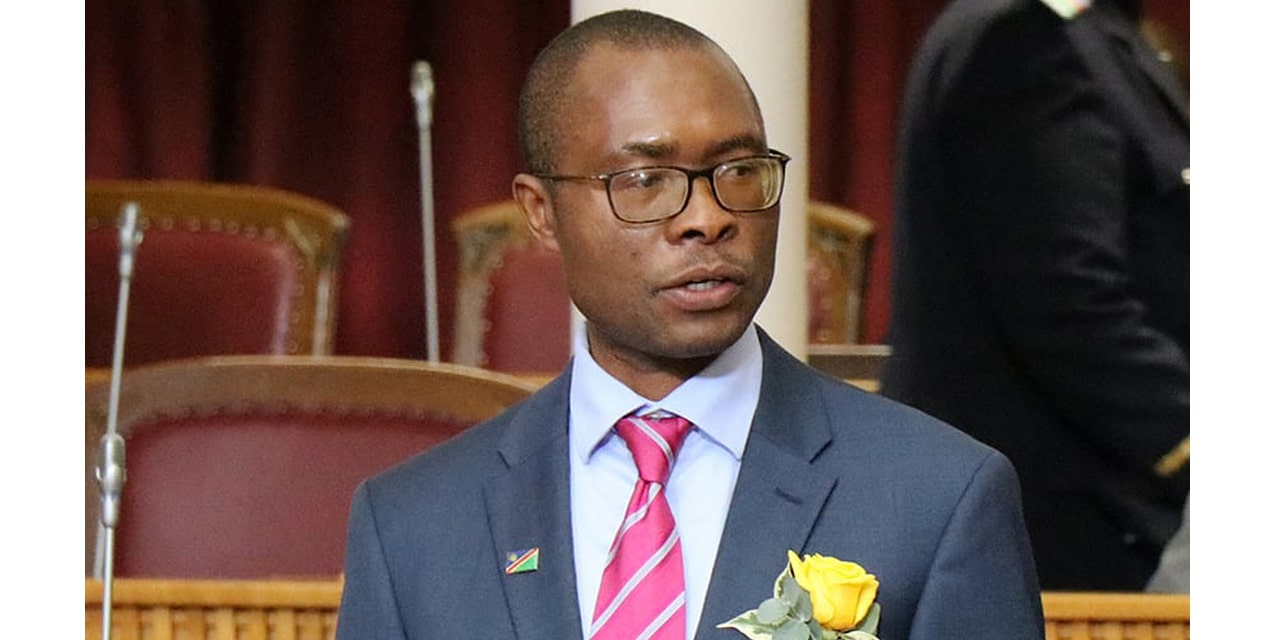Andrew Kathindi
The future of Air Namibia is uncertain after government on Friday announced that it can no longer afford to bailout the national carrier despite it reaching another settlement agreement with Belgian company, Challenge Air.
Finance Minister Iipumbu Shiimi on Friday restated that Air Namibia had significant debts that are unsustainable and that a business plan to save the state-owned enterprise would cost more than N$7 billion, funds which government does not have.
“The government approached all airlines currently operating in Namibia as well as those that intend to operate in Namibia to assess if there would be any appetite to attract a strategic partner or investment for Air Namibia. Regrettably, all of the airlines that were approached declined.”
He added, “The COVID-19 pandemic has equally impacted on the ability of the government as a shareholder of Air Namibia to make adequate funding available to fund new business.”
The finance ministry announcement also raises questions on whether government will afford to fund the settlement agreement announced in court on Friday, where Challenge Air, was pushing for its liquidation.
The agreement, which was settled out of court will carry the force and effect of a court order according to acting Judge Kobus Miller.
Challenge Air, through lawyer Sisa Namandje had last year applied to have Air Namibia liquidated due to an amount which comes from unsettled debt for the leasing and maintenance of a Boeing 767-33A ER belonging to the Belgian company.
According to court documents, the total outstanding amount is €9,867,053 (N$182 million), which has been agreed on by both parties, though the amount owed is previously believed to have been around N$253 million.
Shiimi said that government will study the settlement agreement between Challenge Air and Air Namibia and pronounce itself in the coming days.
Air Namibia has agreed to begin the process of paying the money owed due to the lawsuit, “On or before 18th day of February 2021. Air Namibia shall cause a first payment to be made.”
EURO 4 million will then be paid by Air Namibia beginning with monthly installments of N$677,175.50 on 16 April, with the final installment to come on 22 January 2022.
“In the event that Air Namibia defaults on any of its obligations contained hereinabove and or any payment scheduled per clause 2.2 hereinabove, Challenge Air shall be entitled to execute immediately by a writ of execution,” according to the settlement.
This settlement however comes as Air Namibia had previously reached a settlement with the same company and agreed to pay the debt. They subsequently failed to honour that agreement.
“Whereas the 1st Defendant (Air Namibia) undertook to pay the amounts due to the Applicant (Challenge Air) in a settlement agreement dated 14th day of December 2019. And Whereas the 1st Defendant defaulted on the said settlement agreement and prompted the applicant to institute liquidation proceedings which application was opposed by the 1st Defendant.”
Acting CEO of Air Namibia said that he was pleased to avoid liquidation and that the settlement bought the company time.
“We are happy with it. It’s a step in the right direction. It gives us time to see what we can do to resolve the matter in the long term.”
He added, “We just heard the judgement today (Friday), so we have to see how we can go over that. But I think the most important thing at this point in time is that avoided a national asset being liquidated.”
Quizzed on whether the airliner would be able to make the required payments this time around having defaulted on previous settlements, he told Windhoek Observer, “Let’s hope so. There’s still a long time to go, but let’s hope so.”
This comes as the case when the Transportation Commission of Namibia’s (TCN) bid to revoke the license for Air Namibia has been postponed to 12 March.
In July last year, the TCN suspended the national airliner’s license due to concerns of safety and financial standing. The decision was revoked, allowing the Airliner to continue to operate. However, the flag carrier’s financial remained.




